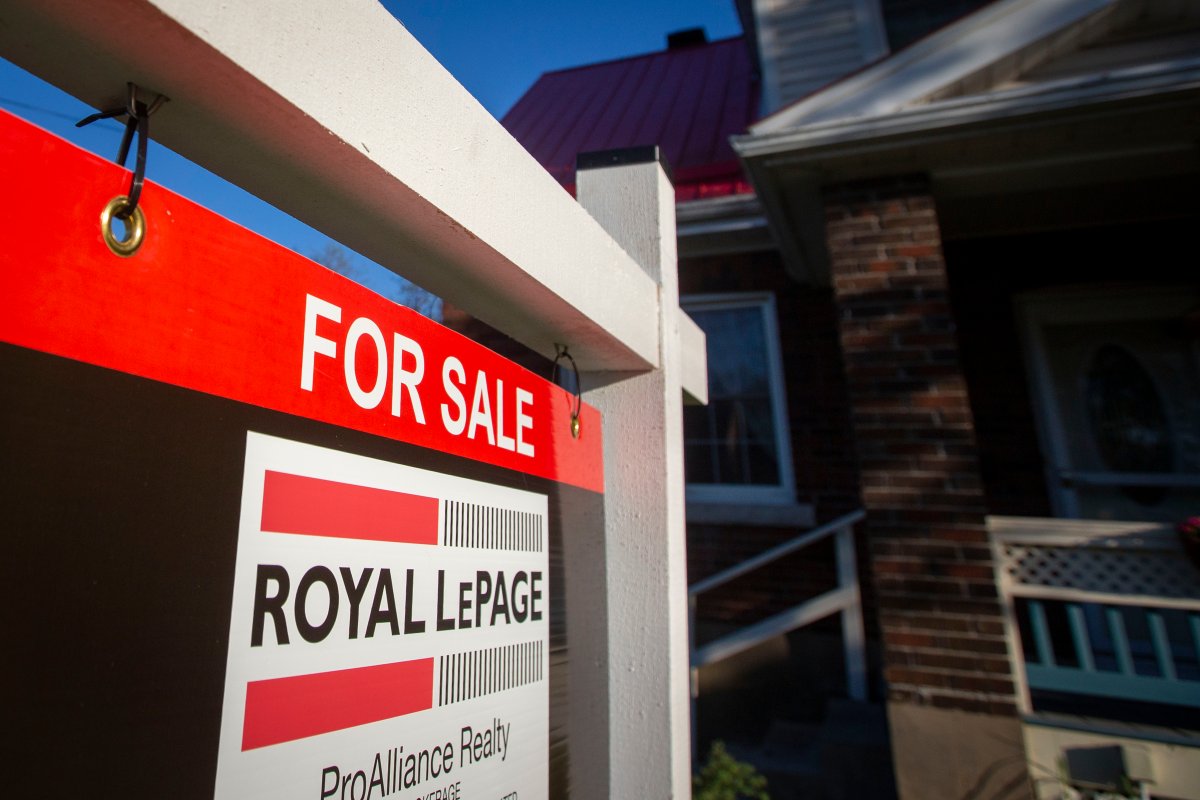TORONTO — The Greater Toronto Area housing market saw home sales and prices barely shift between July and August, but the leader of the region’s housing board is expecting more volatility on the way.

The Toronto Regional Real Estate Board revealed Wednesday that last month brought 5,294 sales, almost one per cent more than July’s sales. However, August’s sales amounted to a 5.2 per cent drop from the previous year.
They were matched with an average home price of $1,082,496, three per cent lower than in July and a 0.3 per cent increase from last August.
The board said the numbers reflect higher borrowing costs and uncertainty about the economy and the Bank of Canada’s decision making, which has resulted in ten interest rate hikes over the last 18 months. The bank decided to hold its key interest rate at five per cent Wednesday morning.
The quick succession of rate hikes has so far pushed many prospective homebuyers to pause their purchasing plans and sellers to hold off listing their properties until buyers are more confident in their borrowing power again.
“Looking forward, we know there will be solid demand for housing _ both ownership and rental _ in the Greater Toronto Area and broader Greater Golden Horseshoe. Record immigration levels alone will assure this,” Paul Baron, the board’s president, said in a press release.
“In the short term, we will likely continue to see some volatility in terms of sales and home prices, as buyers and sellers wait for more certainty on the direction of borrowing costs and the overall economy.”
Some 12 per cent fewer detached homes were sold in August, when compared with a year earlier. Semi-detached property sales fell 14.4 per cent, but condo apartments sales increased 7.6 per cent and townhouse sales moved up 0.6 per cent.
Cailey Heaps, president of the Heaps Estrin Real Estate Team in Toronto, says she noticed the market was quieter in August, especially when compared with July.
“Contrary to popular opinion though, I’m not convinced it’s entirely tied to rising interest rates,” she wrote in an email.
“My clients in the central core of Toronto were disengaged from the market, wanting to enjoy the last of our short summer.”
Had they waded into the market in August, they would have found the average price of a detached home in Greater Toronto ticked up almost three per cent to more than $1.4 million in August year-over-year, while semi-detached properties rose nearly seven per cent to slightly more than $1 million.
Over the same time period, the average townhouse price moved up by just shy of four per cent to $935,800, while average condo apartment prices slid by about one per cent to $705,572.
Amid these changes and a predicted recession, Desjardins economists Jimmy Jean and Marc Desormeaux noticed many prospective Toronto homebuyers are sensing an opening.
“But even in the direst of economic scenarios, we don’t see affordability returning to Canada’s largest city any time soon,” they said in a report released Tuesday.
Their research involved analyzing three scenarios Toronto could face.
The first, a severe recession mirroring the one seen in the 1990s, would drive average Toronto home values $185,000 or 16 per cent below current levels by the end of next year, they predicted. By 2025, prices would fall $340,000 or 30 per cent lower than in July 2023, under their modelling.
In the second scenario, where a moderate recession occurs, they said Toronto house prices could bottom out by the end of next year at about five per cent below July 2023 levels.
In the third scenario, where new listings are weak and population is growth strong, home prices would push past the February 2022 peak by early 2025.
“Although this would be great news for property owners, it is the least positive of our scenarios for prospective buyers,” they point out.



Comments